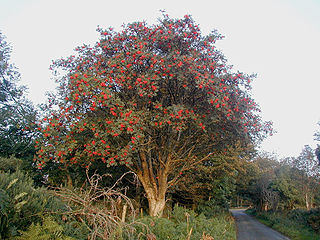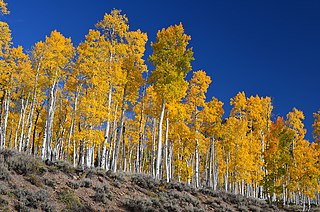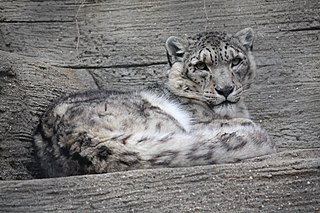 W
WSeveral cladistic analyses have shown that the genus Acacia is not monophyletic. While the subg. Acacia and subg. Phyllodinae are monophyletic, subg. Aculeiferum is not. This subgenus consists of three clades. Therefore, the following list of Acacia species cannot be maintained as a single entity, and must either be split up, or broadened to include species previously not in the genus. This genus has been provisionally divided into 5 genera, Acacia, Vachellia, Senegalia, Acaciella and Mariosousa. The proposed type species of Acacia is Acacia penninervis.
 W
WThis is a list of Acacia species that are known to contain psychoactive alkaloids, or are suspected of containing such alkaloids due to being psychoactive. The presence and constitution of alkaloids in nature can be highly variable, due to environmental and genetic factors.
 W
WThis is a list of Southern African trees, shrubs, suffrutices, geoxyles and lianes, and is intended to cover Angola, Botswana, Lesotho, Malawi, Mozambique, Namibia, South Africa, Swaziland, Zambia and Zimbabwe.
 W
WThis is a list of Aiphanes species. Aiphanes is a genus of spiny palms which is native to tropical regions of South America, Central America, and the Caribbean.
 W
WThis is a list of approximately 167 species in the legume tree genus Albizia, the silk trees, sirises or albizias.
 W
WBanyan is considered holy in several religious traditions of India. The Ficus benghalensis is the National tree of India, and also the state tree of Madhya Pradesh.
 W
WMany lists of trees of Great Britain and Ireland have been written. There are a number of issues surrounding the inclusion of a species in such a list. As can be seen from the outline of debate below, there is no 'correct' list of trees of Britain and Ireland.
 W
WGreat Trees of London was a list created by Trees for Cities after the Great Storm of 1987, when the general public were asked to suggest suitable trees. Forty-one were chosen, with a further 20 added in 2008. Time Out published a book 'The Great Trees of London' listing all 61 trees in 2010.
 W
WPrior to European settlement, the Caribbean was dominated by forested ecosystems. The insular Caribbean has been considered a biodiversity hotspot. Although species diversity is lower than on mainland systems, endemism is high.
 W
WHardy palms are any of the species of palm (Arecaceae) that are able to withstand brief periods of colder temperatures and even occasional snowfall. A few palms are native to higher elevations of south Asia where true winter conditions occur, while a few others are native to the warmer parts of the temperate zone in North America. A few of these temperate climate palms can tolerate hard freezes with little or no damage. Many of these "hardy " species can be cultivated in warmer parts of temperate climates.
 W
WIran has a very varied climate and a large variety of plants. More than 13 percent of the country is covered by forests. The list below is a just a start and is yet to be completed:Anacardiaceae Pistacia vera Aquifoliaceae Ilex aquifolium Arecaceae Phoenix dactylifera Betulaceae Betula medwediewii Betula pendula Alnus glutinosa Alnus incana Alnus subcordata Carpinus betulus Carpinus orientalis Corylus colurna Ostrya carpinifolia Buxaceae Buxus hyrcana Buxus sempervirens Celtidaceae Celtis caucasica Celtis australis Cupressaceae Cupressus sempervirens Juniperus communis Juniperus excelsa Juniperus foetidissima Juniperus excelsa Juniperus oxycedrus Juniperus sabina Platycladus orientalis Ebenaceae Diospyros lotus Elaeagnaceae Elaeagnus angustifolia Fabaceae Albizia julibrissin Cercis siliquastrum Gleditsia caspica Fagaceae Castanea sativa Fagus orientalis Quercus boissieri Quercus calliprinos Quercus castaneifolia Quercus macranthera Quercus petraea Quercus pontica Quercus robur Hamamelidaceae Parrotia persica Juglandaceae Juglans regia Pterocarya fraxinifolia Lauraceae Laurus nobilis Lythraceae Punica granatum Malvaceae Tilia platyphyllos subsp. caucasica Tilia tomentosa Moraceae Ficus carica Morus alba Morus nigra Oleaceae Fraxinus angustifolia var. oxycarpa Fraxinus excelsior Fraxinus ornus Olea europaea Pinaceae Pinus brutia "Picea orientalis" Platanaceae Platanus orientalis Punicaceae Punica granatum Rhamnaceae Paliurus spina-christi Rhamnus pallasii Rosaceae Crataegus laciniata Crataegus tanacetifolia Cydonia vulgaris Malus domestica Mespilus germanica Prunus armeniaca Prunus cerasifera Prunus cerasus Prunus dulcis Prunus laurocerasus Prunus persica Prunus spinosa Pyrus communis Sorbus aucuparia Sorbus torminalis Rutaceae Citrus aurantium Citrus decumana Citrus delicivsus Citrus limonum (lime) Citrus limonum var. dulcis Citrus vulgaris Salicaceae Populus alba Populus euphratica Populus nigra var. afghanica Salix alba Salix daphnoides Salix viminalis Sapindaceae Acer campestre Acer cappadocicum Acer hyrcanum Acer tataricum Acer trautvetteri Acer velutinum Taxaceae Taxus baccata Ulmaceae Ulmus carpinifolia Ulmus glabra Zelkova carpinifolia Vitaceae Vitis vinifera
 W
WThis is a list of the native woody plant species of Lithuania. The most common trees, shrubs, subshrubs, and liana species are marked with a star (*). The list contains 98 woody and semi-woody plant species.
 W
WThere are at least 20 species of Gymnosperms or Coniferous plants in Montana.
 W
WThe nectar resource in a given area depends on the kinds of flowering plants present and their blooming periods. Which kinds grow in an area depends on soil texture, soil pH, soil drainage, daily maximum and minimum temperatures, precipitation, extreme minimum winter temperature, and growing degree days. The plants listed below grow in USDA hardiness zone 5. A good predictor for when a plant will bloom and produce nectar is a calculation of the growing degree days. Hopkins' bioclimatic law states that in North America east of the Rockies, a 130-m (400-foot) increase in elevation, a 4° change in latitude North (444.48 km), or a 10° change in longitude East will cause a biological event to occur four days later in the spring or four days earlier in the fall. In botany, the term phenology refers to the timing of flower emergence, sequence of bloom, fruiting, and leaf drop in autumn.
 W
WNew Zealand's long geological isolation means that most of its flora is unique, with many durable hard woods. There is a wide variety of native trees, adapted to all the various micro-climates in New Zealand. The native bush (forest) ranges from the subtropical kauri forests of the northern North Island, temperate rainforests of the West Coast, the alpine forests of the Southern Alps and Fiordland to the coastal forests of the Abel Tasman National Park and the Catlins.
 W
WThis is a list of the oldest-known trees, as reported in reliable sources. Definitions of what constitutes an individual tree vary. In addition, tree ages are derived from a variety of sources, including documented "tree-ring" (Dendrochronological) count core samples, and from estimates. For these reasons, this article presents three lists of "oldest trees," each using varying criteria.
 W
WIn Pakistan, more than 430 tree species are distributed over 82 families and 226 genera. Out of these 22 species from 5 families and 11 genera belong to softwood trees of gymnosperms. For all plant families found in Pakistan, see Flora of Pakistan.
 W
WPalms are symbolically important in the Caribbean, appearing on the coats of arms of several Caribbean nations and on the flag of the West Indies cricket team. In 2004, Carlo Morici reported that there are about 191 genera and 2339 species of Arecaceae, the palm family. Their distribution is biased toward islands - 36% of genera and 52% of species are found only on islands, while 32% of genera and 6% of species are found only on continents. Sixty-two percent of monotypic genera are found only on islands.
 W
WThis is a list of giant sequoia groves. All naturally occurring giant sequoia groves are located in the moist, unglaciated ridges and valleys of the western slope of the Sierra Nevada range in California, United States. They can be found at elevations between 1400 – 2400 meters.
 W
WThe giant sequoia is the world's most massive tree, and arguably the largest living organism on Earth. It is neither the tallest extant species of tree, nor is it the widest, nor is it the longest-lived. However, with a height of 87 meters (286 ft) or more, a circumference of 34 meters (113 ft) or more, an estimated bole volume of up to 1,490 cubic meters (52,500 cu ft), and an estimated life span of 1800–2700 years, the giant sequoia is among the tallest, widest and longest-lived of all organisms on Earth.
 W
WThe world's superlative trees can be ranked by any factor. Records have been kept for trees with superlative height, trunk diameter or girth, canopy coverage, airspace volume, wood volume, estimated mass, and age.
 W
WSweden's superlative trees have been ranked by various factors. Records have been kept for trees with superlative height, wood volume, age, and stoutness. This last one means trunk diameter or girth.
 W
WThis is a list of the tallest known tree species, as reflected by measurements of the tallest reliably-measured individual specimen. Although giant trees grow in both tropical and temperate regions, they are very restricted geographically and phylogenetically. All the known giant trees occur in mesic climates, and nearly all of them are found in three regions: western North America from California to British Columbia, Southeast Asia and southeastern Australia.
 W
WThe following is a list of widely known trees and shrubs found in Texas. Taxonomic families for the following trees and shrubs are listed in alphabetical order by family.
 W
WBelow is a list of trees that symbolise Venezuela and each state of the country:
 W
WWeeping trees are characterized by soft, limp twigs. This characterization may lead to a bent crown and pendulous branches that can cascade to the ground. While weepyness occurs in nature, most weeping trees are cultivars. Because of their shape, weeping trees are popular in landscaping; generally they need a lot of space and are solitary so that their effect is more pronounced. There are over a hundred different types of weeping trees. Some trees, such as the cherry, have a variety of weeping cultivars. There are currently around 550 weeping cultivars in 75 different genera, although many have now disappeared from cultivation.